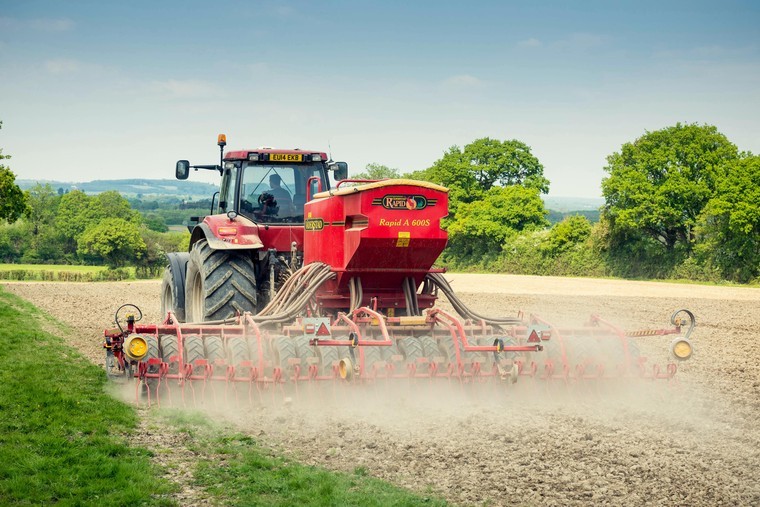Arable farming operations have resumed at a record pace on the Hadlow Estate in Kent after heavy rain halted work in October last year.
The sowing of winter wheat crops had to be abandoned at the end of 2019 as the ground was still too wet. This month, with the arrival of drIer and warmer weather, staff have faced a race against the clock to sow 451 hectares of spring crops.
Hadlow Place Farm is located on the Hadlow Estate between Golden Green and Tudeley, and focuses on fruit farming and arable crops. Much of the land is farmed for wheat, barley, beans, peas and oilseed rape, while most of the production goes directly into the home market for food products, flour milling, malting and livestock feed.
Farm Manager Nigel Gibb explains: “Last year was without doubt the worst I’ve seen for wet weather. The fields were so saturated from the high levels of rain that we were simply unable to get any crops in, which is why the past few weeks have been so critical. Thankfully the Covid-19 crisis hasn’t impacted on us too greatly as we are able to safely observe all social distancing guidelines and safety advice to continue working.”
The farmland sits close to the River Medway and its soil is a combination of silt and clay. This can cause problems for crops if the area floods, as during an ordinary season winter wheat would only survive for four to five days if submerged, while oil seed rape would be destroyed within a day or two. This usually only occurs once every five years or so. However, this winter saw unprecedented rainfall and the impact of storms Ciara and Dennis.
The timing of the current work is crucial, as it must be complete by the end of April.
Nigel added: “We’ve sown spring barley, spring wheat, spring beans, peas and linseed. The land is very dry on the surface but wet just underneath. Our work begins by preparing the ground with a power harrow which breaks up the soil, refining and distributing it, before the roller is brought in to flatten the land. It is then ready for the drilling of seeds to take place. Luckily the oil seed rape was sown last August before the rain. All being well, we will be able to combine the crops in August.”




